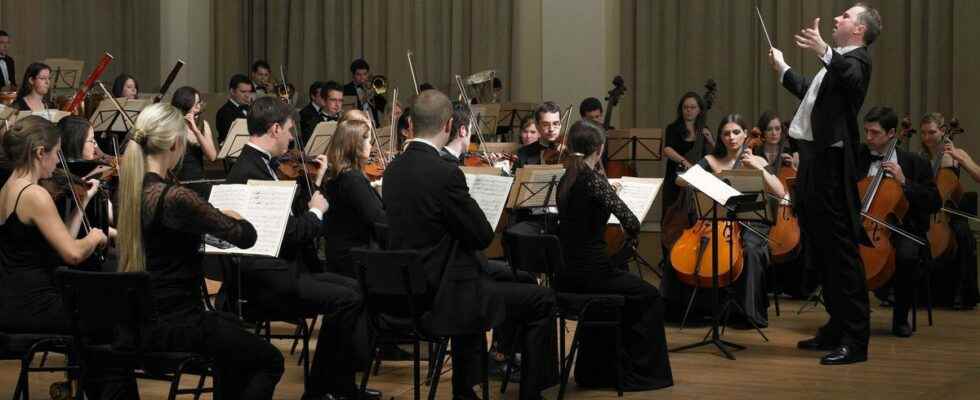Published on
Updated
Reading 2 mins.
Under the gold of a prestigious Viennese hall, a somewhat special concert is taking place. Weakened by old age, sometimes suffering from dementia, the listeners here have nothing to fear from the gaze of others.
“Souvenir”, this unique concept in Austria was inaugurated in October so that they “feel welcome, in a place where anything goes”explains Stephan Pauly, director of the Musikverein institution.
Far from the formal protocol of the famous New Year’s Concert, a few dozen people take their places in a small adjacent room, with rows spaced out to facilitate movement.
In a wheelchair, accompanied by their loved ones or the staff of retirement homes, they can reconnect without stress with the lost pleasure of concerts.
From the start, the tone is set: moderator Veronika Mandl tells them that they can move around as they please, leave the place at any time, get up to go to the toilet…
On stage, a trio of young Polish musicians and on the program, works by Schubert or Brahms accompanied by anecdotes on the life of the composers and Christmas carols willingly taken up by the audience.
Emotion surfaces, graying heads seek refuge on the neighboring shoulder, the intimate atmosphere invites tender gestures.
“Opening Doors”
“I do a lot of research” to find out “what happened in the youth of the people who come to the concert” and concoct a tailor-made menu, underlines Ms. Mandl, a specialist in musical pedagogy and also a clown at the hospital.
“Even at an advanced stage (of the disease), these people are receptive to music” which, unlike other emotions, has the ability to penetrate “in different areas of the brain”she explains, echoing the conclusions of the experts.
“Music can really open doors”especially in the context of a real concert, and not “in a therapeutic context”.
In the audience, Andreas Trubel, who has neurocognitive disorders, is at his third “Souvenir” concert.
Dressed in simple jeans, he says he likes “the relaxed style”, the duration not too long (about an hour), the proximity to the artists.
“People can get carried away, they can dance, sing, which makes it possible to feel the music much more intensely”, says this 67-year-old former computer developer, now co-responsible for the Promenz association for “people who forget”.
All the protagonists have undergone training to know how to react in the event of unusual situations, such as this time when a spectator kept mumbling. With delicacy, we guided her to a place a little further.
Faced with “the immense success”, Stephan Pauly has already decided to renew the experience next year. “It’s a very small part of the 800 concerts that we produce each year”, he underlines, but one of the most “beautiful and important for us”.
Iris Krall-Radulian, a caregiver who is also a trained musician, will not contradict this, after seeing the joy of the residents she accompanied to the Musikverein.
“They used to go to concerts when they were fit and it’s extremely valuable to them” to have the opportunity again, she said. “The impact is enormous, they feel happy, alive”.
